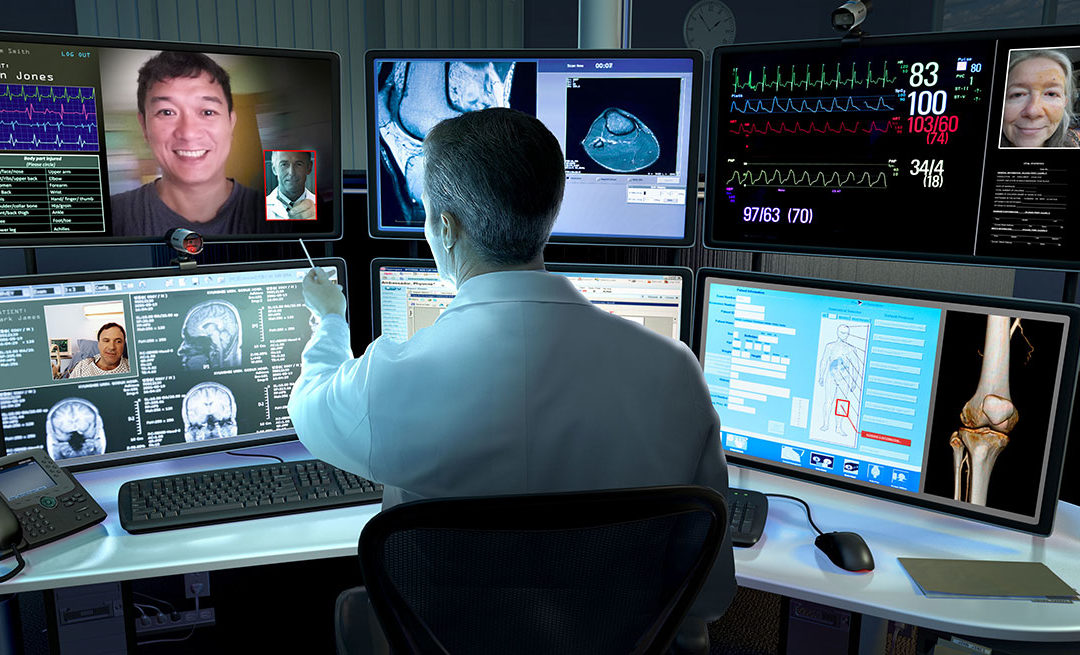Something has been taking place in the healthcare industry for the past years, and it’s being driven by technology. A highly-disruptive phenomenon, telemedicine facilitation it’s making its way through the future at an accelerated pace. This has caught the attention of those who seek to practice telemedicine facilitation, benefit from it and those who seek to provide the knowledge for it. But first of all, what is Telemedicine?
Telemedicine

Is a practice that involves gathering health information from a patient, including symptoms and vital signs, and then retransmitting this data live to a remote physician who will provide further information to help the patient (including video conferences). These can be extremely useful for a variety of scenarios, and benefits both the patient and the clinic facilities. So who is in charge of providing this service?
Telemedicine Facilitator
Is the name of the person in charge of executing the information gathering from the patient in person. It is important to note that this facilitator is not an actual doctor or a nurse. Instead, it’s a person who is certified for gathering information through doctor equipment and manipulate the necessary technology for transmitting the information to the physician, who will make decisions based on the case. This allows the physician to know what is the patient’s blood pressure, temperature or heartbeat without being physically in the room. So who can certify and train a Telemedicine Facilitator?
Telemedicine Facilitation courses
 In a highly dynamic world, where technology makes everything work differently every day, education needs to stay on top in order to stay relevant. Because of this, Sheridan College saw an opportunity to launch a program that will help those who wish to be part of this revolution. Launched in the Davis Campus (Brampton) in 2016, the Telemedicine Facilitation courses are delivered through a blended method, giving the students an opportunity to study from home and on campus.
In a highly dynamic world, where technology makes everything work differently every day, education needs to stay on top in order to stay relevant. Because of this, Sheridan College saw an opportunity to launch a program that will help those who wish to be part of this revolution. Launched in the Davis Campus (Brampton) in 2016, the Telemedicine Facilitation courses are delivered through a blended method, giving the students an opportunity to study from home and on campus.
The Telemedicine Facilitation certificate program has been designed to prepare you to perform information gathering procedures and remote case presentation to facilitate patient/doctor communication and interaction – enabling greater access to medical services within urban, rural, and remote communities. This program will:
- appeal to those interested in pursuing Telemedicine Facilitator mid-tier career opportunities in the electronic medical offices of today and the near future.
- benefit those currently working in health care services who want to acquire Telemedicine Facilitation knowledge, skills, and abilities to expand career growth opportunities. – Sheridan College Further Continuing and Professional studies website.
Ultimately, this will benefit all parties:
- people who have a medical background of some sort,
- people who work in the healthcare industry that wish to expand their skills,
- patients who don’t have to commute for simple problems,
- and hospital and clinic rooms that will decrease their traffic.
So what are you waiting for? Join the future and get information to study Telemedicine Facilitation certificate program here.






Recent Comments